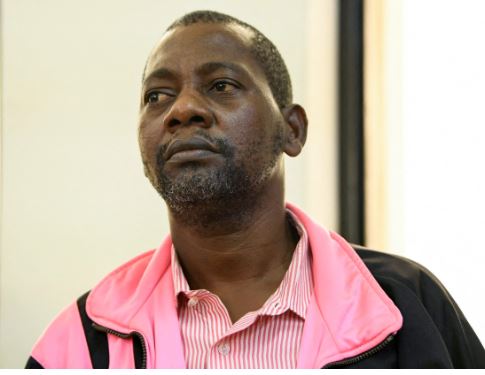Grace Mulei released on Sh10,000 cash bail as she recounts ordeal before her dramatic arrest

According to Mulei, she was driven around to three different locations before finally ending up at the police station.
Grace Njoki Mulei, the woman who captured national attention for leading a protest at Afya House, has been released on a Sh10,000 cash bail.
While testifying to the media in Nairobi about her ordeal within the last 24 hours, the 61-year-old said that she had been abducted and taken to three different locations by officers who did not identify themselves.
More To Read
"While receiving treatment at Ladnan hospital, two gentlemen and a lady forcibly arrested me without providing any identification or charges," stated Grace.
She went further to say that the unidentified officers seized her phone immediately after she had called her son and husband to inform them of the circumstances.
"When the hospital tried to intervene, over 20 officers from the Pangani Police Station came in and dragged me out of the facility," she explained.
According to Mulei, she was driven around to three different locations before finally ending up at the police station.
Flanked by former Nairobi Governor Mike Sonko and Makueni Senator Daniel Maanzo, Mulei also reiterated her criticisms of the Social Health Authority (SHA).
"I am not seeking any political post. All I am saying is that SHA is failing the majority of patients who depend on it for medical care," she said.
She claimed the officers failed to identify themselves and gave no clear explanation for her arrest.
"Less than 10 minutes later, a man and a lady came and said they wanted to take me somewhere. I asked where and what I had done. They refused to tell me," she said.
According to Mulei, she noticed a security officer, whom she recognised from Kenyatta National Hospital and grew suspicious. Shortly after, two individuals approached her, insisting that she leave the hospital with them.
When she refused, they allegedly dragged her out, ignoring protests from hospital staff.
"They manhandled me, pinched me, and bullied me without explaining my crime," Njoki said.
"To me, it was an abduction. They knew where I lived. They could have called me to write a statement instead of treating me like a criminal."
Mulei defended her actions, saying she was advocating for the many voiceless patients suffering under the current healthcare policies.
"All I did was fight for those who are overlooked in our healthcare system," she said.
Witnesses recalled seeing Mulei being forced into a black Subaru Outback, prompting her son, George, to issue an urgent plea for help.
"We suspect she has been targeted by the State. Please assist urgently in ensuring her safety," he said.
"Disturbance"
The Directorate of Criminal Investigations later confirmed Mulei's arrest, stating that she had caused a disturbance at the Ministry of Health boardroom before being tracked and detained at Upper Hill Police Station.
Her arrest has sparked widespread outrage, with organisations such as the Kenya Medical Association, the Law Society of Kenya, and the Police Reforms Working Group condemning the act as a violation of fundamental rights.
"Every individual, regardless of their activism or opinions, has the right to healthcare without fear of harassment or arrest," they said in a joint statement.
They also called for an immediate review of Mulei's case and the withdrawal of all charges against her.
Mulei and Diana Akoth, a mother of a three-day-old baby, were among the protesters who stormed Afya House last week to demand answers about inefficiencies in the Social Health Insurance Fund (SHIF).
"We have walked from Kenyatta Hospital to the SHIF offices, but nothing has been done to help us," Mulei said.
Akoth, visibly distraught, added, "This system is failing us. We demand the truth about SHIF and why it's causing so much suffering."
The SHA system has been widely criticised for bureaucratic delays, system glitches, and lack of transparency. Many Kenyans report paying premiums yet being unable to access treatment, while technical challenges in integrating databases continue to hinder efficiency.
Top Stories Today











































